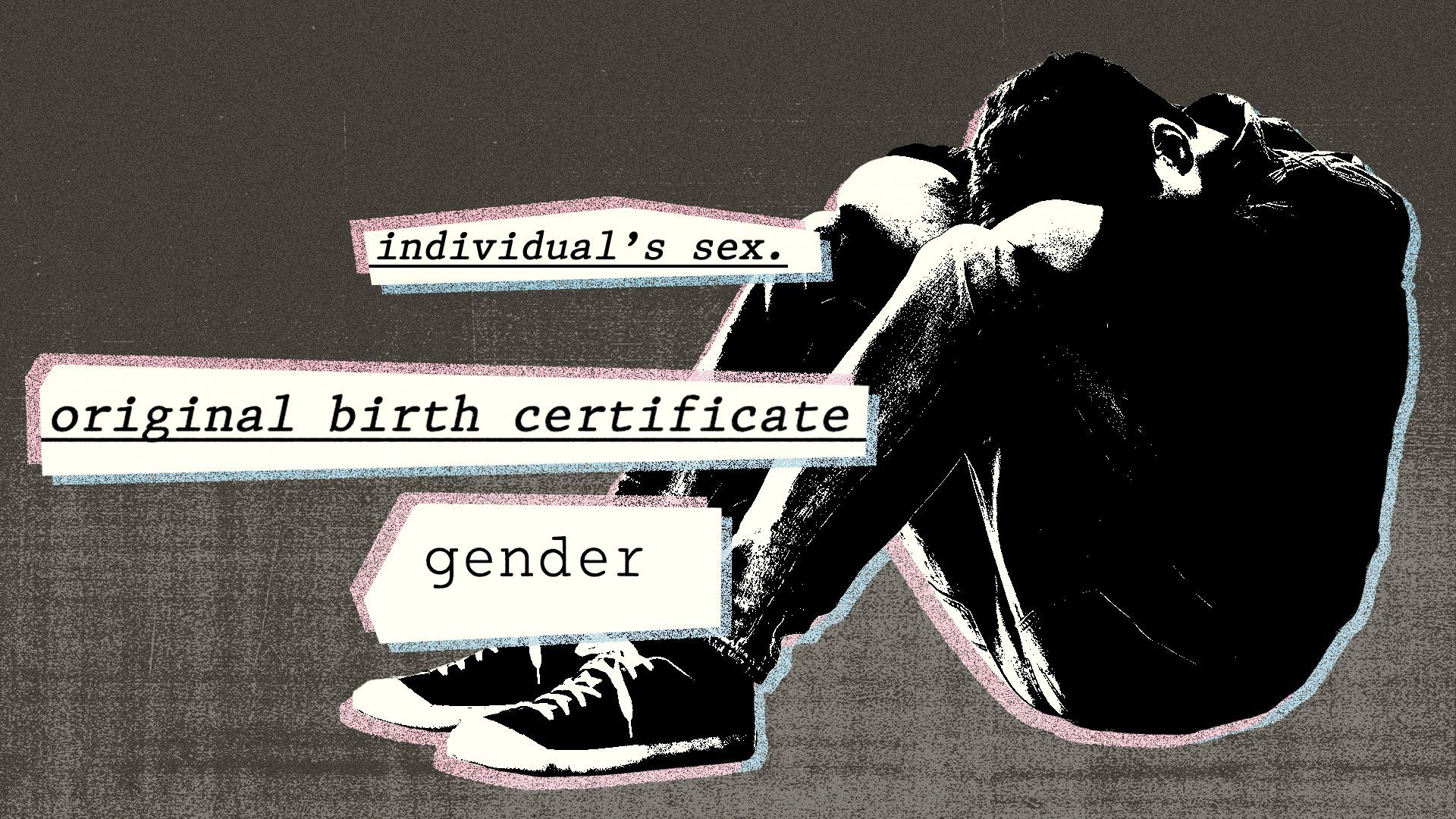
Illustration: Maura Losch/Axios
The record-setting number of bills targeting the transgender community is already harming trans’ youths mental health, experts and advocates warn.
Why it matters: Advocates and the parents of transgender kids say lives are at stake.
- The LGBTQ+ community is already at higher risk for disorders like anxiety and depression, said Joshua Goodman, assistant professor of psychology at Southern Oregon University who studies issues related to the LGBTQ+ community and identifies as bisexual.
- This is especially true for LGBTQ+ youth, who consistently report higher rates of depression and suicidal ideation than their straight and cisgender peers.
By the numbers: In poll released earlier this year by the Trevor Project, 86% of transgender and nonbinary youth said the recent debates over state laws restricting the rights of transgender people have negatively impacted their mental health.
- Among all LGBTQ+ youth, 1 in 3 reported cyberbullying or online harassment, 1 in 4 reported that they stopped speaking to a family member or relative, and 1 in 5 reported bullying.
State of play: More than 400 bills targeting LGBTQ+ rights have been introduced this year, and even the consideration of those measures can harm the mental health of individuals in that community.
- Bills to ban gender-affirming care for minors, restrict which pronouns teachers can use for transgender children and regulate which bathrooms transgender people can use are among those that have been filed in multiple states this year.
Threat level: The Trevor Project’s 2022 National Survey on LGBTQ Youth Mental Health found that suicidal thoughts have trended upward over the last three years.
- Last year, 45% of LGBTQ+ youth reported seriously considering a suicide attempt. That number was higher for gender-diverse youth, peaking at nearly 60% for transgender boys and young men.
- “If this bill passes, transgender kids will die,” Leonardo Hinnant, a freshman college student and transgender man from Georgia, recently told state lawmakers, who ultimately passed a ban on hormone therapy and transition-related surgery for minors.
The big picture: Nearly a decade after the Supreme Court made same-sex marriage legal nationwide, this new and concerted effort to roll back rights has also been re-traumatizing for older members of the LGBTQ+ community, said Sherril Wayland, director of special initiatives at SAGE, an advocacy organization representing older LGBTQ+ people.
- Calls to SAGE’s mental health hotline have seen a nearly two-fold increase in calls since January.
What they’re saying: “Please vote ‘no’ so I don’t have to plan my son’s funeral,” said Larisha Hanks, the mom of a 14-year-old transgender boy in Indiana where the governor recently signed a law banning gender-affirming health care for minors.
- Hanks’ son told Indiana lawmakers that being part of the gender clinic and starting hormone therapy has been life-changing. Under the law, which goes into effect July 1, kids on puberty blockers and hormone therapy will have six months to transition off of the drugs.
- “I feel like I have something to live for,” he said. “And now what? You’re just going to take it all away with this bill?”
The other side: Proponents of bills like Indiana’s say they’re needed to protect children from making life-altering decisions that they’re not old enough to fully understand.
- Travis Weber, the Family Research Council’s vice president for policy and government affairs, said Christian activists aren’t seeking to impose their beliefs on others — they’re fighting against beliefs being imposed on them, Axios’ Russell Contreras reports.
- “These ideas are presented to their children without their consent,” Weber said. “Americans are reacting to what they are seeing, and it’s being reflected in some of these laws moving.”
Yes, but: Some parents argue that medical decisions for their kids should be made between parents, children and their doctors — not the government.
- Gender-affirming care is widely supported as appropriate and medically necessary by major health groups, including the American Medical Association, American Psychological Association and the American Academy of Pediatrics.
Go deeper:
- Axios Explains: Gender-affirming care in the U.S.
- What states are restricting transgender health care
If you are thinking about harming yourself — get immediate support.
- LGBTQ+ youth can connect to a crisis counselor with The Trevor Project anytime, from anywhere in the U.S. by calling 1-866-488-7386 or texting ‘START’ to 678-678. It is free and confidential.
- If you are an LGBTQ+ elder or care for one, you can call the free SAGE Hotline at 877-360-LGBT(5428). It is available 24 hours a day, 7 days a week, in English and Spanish, with translation in 180 languages.
- You can also call 988 to reach the national Suicide & Crisis Lifeline and speak with a trained crisis specialist 24/7.






